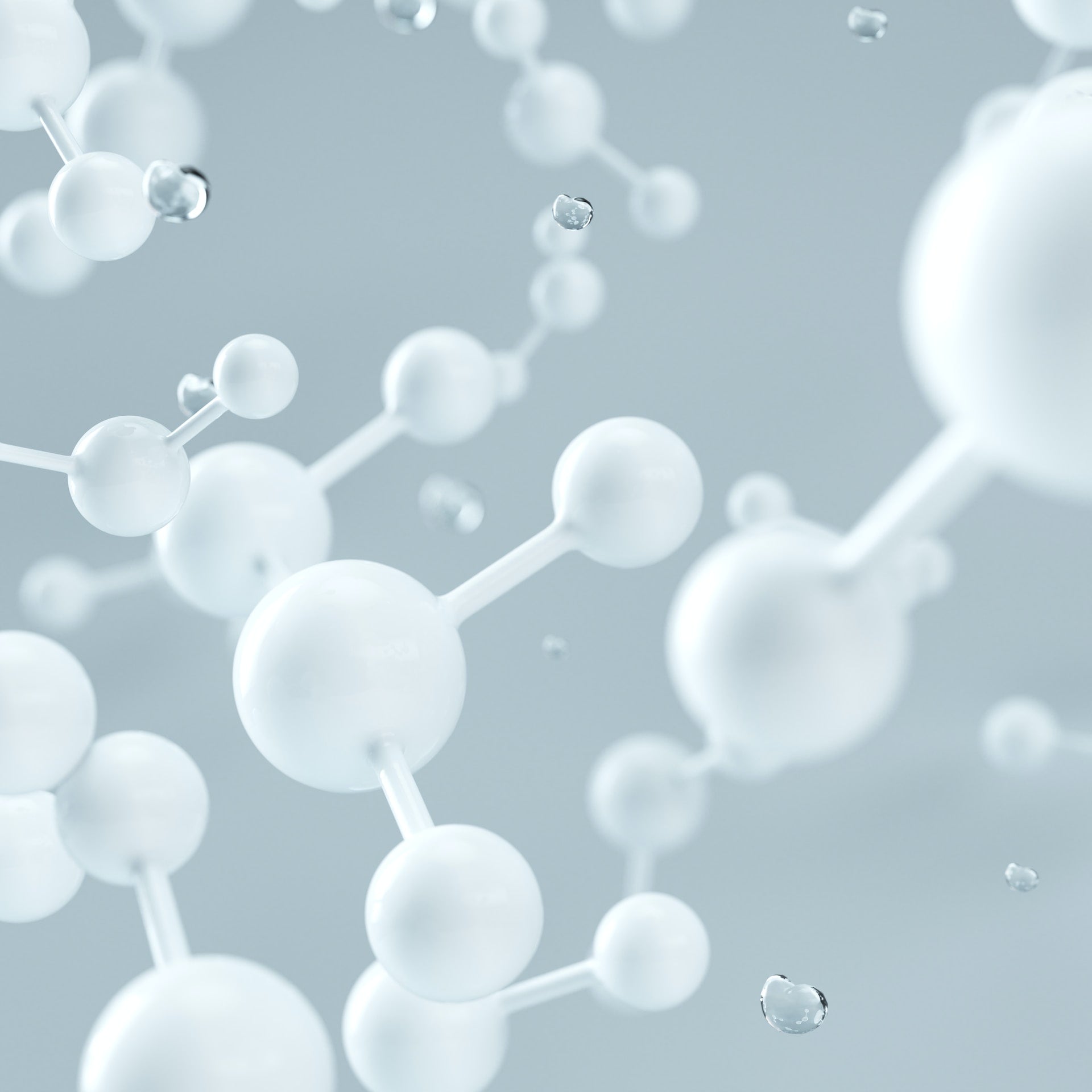I have always felt that health should be built from the ground up, which is why LifeBlud mainly focuses on providing the building block tools with which our body uses for the flow of energy, to combat stress, and to protect itself from environmental toxins.
Amino Acids are a massive component of this biological system. The interplay between energy and structure is the most important thing to note here. As Dr. Ray Peat has said "energy and structure are interdependent, on every level".
Amino acids complex with water, electrolytes, and fats to make up the entire crystalline-water-structure that we are. When we have the building blocks to make up our structure, it allows us to generate energy. When we have the flow of energy, it further improves our structure. The two are inseparable.
What are amino acids?
Amino acids are the building blocks of life. They are organic compounds that combine to form proteins, which are vital for the structure, function, and regulation of the body's tissues and organs as well as the precursor to many enzymes and neurotransmitters needed for optimal health.
Protein = a collection of amino acids.
Amino acids = different 'building blocks' that facilitate MANY important functions and processes in the body.
When we eat protein, it is broken down into different amino acids (depending on the food) and then the amino acids are used for a variety of important roles in the body that we will soon cover in detail.
There are 20 types of amino acids, which are separated into two main groups:
Essential amino essential - cannot be made by the body, must be eaten.
Non-essential amino acids - can be made by the body IF the body is functioning well, AND if it has the 'essential' amino acids which they are made from.
However, I want to stress that ALL of them are 'essential' for your body in different amounts, and just because one of them CAN be made by your body does not mean it is being made, as these processes can be disrupted by many stressors and imbalances, or deficiencies of the essential amino acids, which get converted into the non-essential ones.
What roles do they play in the body?
Amino acids have a wide range of roles in the body, and their functions are diverse and complex. Here are some of the key roles they play:
1. Building and repairing tissues
Amino acids are essential for the growth, maintenance, and repair of tissues in the body. They help in the formation of new cells and the repair of damaged tissues, ensuring that our body stays strong and healthy.
2. Enzyme production
Enzymes are proteins that catalyze chemical reactions in the body. Amino acids are required for the production of enzymes, which are involved in various metabolic processes, such as digestion, energy production, and detoxification.
3. Hormone regulation
Amino acids are involved in the synthesis and regulation of hormones, which act as chemical messengers in the body. Hormones play a crucial role in maintaining homeostasis, regulating growth and development, and controlling various physiological processes.
4. Muscle growth and repair
Amino acids, particularly the branched-chain amino acids (BCAAs), are crucial for muscle growth and repair. They help in the synthesis of muscle proteins and prevent muscle breakdown, promoting muscle recovery and enhancing athletic performance.
5. Energy production
Amino acids can be converted into glucose through a process called gluconeogenesis. This glucose can then be used as a source of energy by the body, especially during times of fasting or intense physical activity.
6. Brain function and mood regulation
Amino acids, such as phenylalanine and tyrosine, are precursors to neurotransmitters, which are chemicals that transmit signals in the brain. These neurotransmitters play a crucial role in regulating mood, cognition, and overall brain function.
7. Nutrient absorption and digestion
Bile salts are synthesized from amino acids, which help us to digest and assimilate fats and fat-soluble vitamins from the foods that we eat.
Why Supplement Amino Acids?
You may wonder why you would worry about taking non-essential amino acids, if the body can make them. Here's some things to consider:
- your body may not be making them adequately or correctly
- you may not be consuming the essential amino acids used to make them in the first place, or not enough of them to do so consistently
- supplementation has been proven to provide therapeutic responses as shown in many studies (see product pages for Toro, Thea, and TyroPhen for various studies in the references tab)
As for supplementing essential amino acids, sometimes it's difficult to eat as protein-rich as we intend to, and it can be difficult to ensure which amino acids will be in each type of protein and in what amounts, as well as eating a balanced amino acid profile from a wide variety of proteins. If you want to take more control, and be sure you're getting what you need without going full carnivore mode, supplementation is key.
In short, amino acids are the unsung heroes of our body. By understanding the roles they play and ensuring an adequate intake, we can reach new levels of health from the ground up.



Comment1
Great explanation. Came here after Blackburns podcast. /cheers